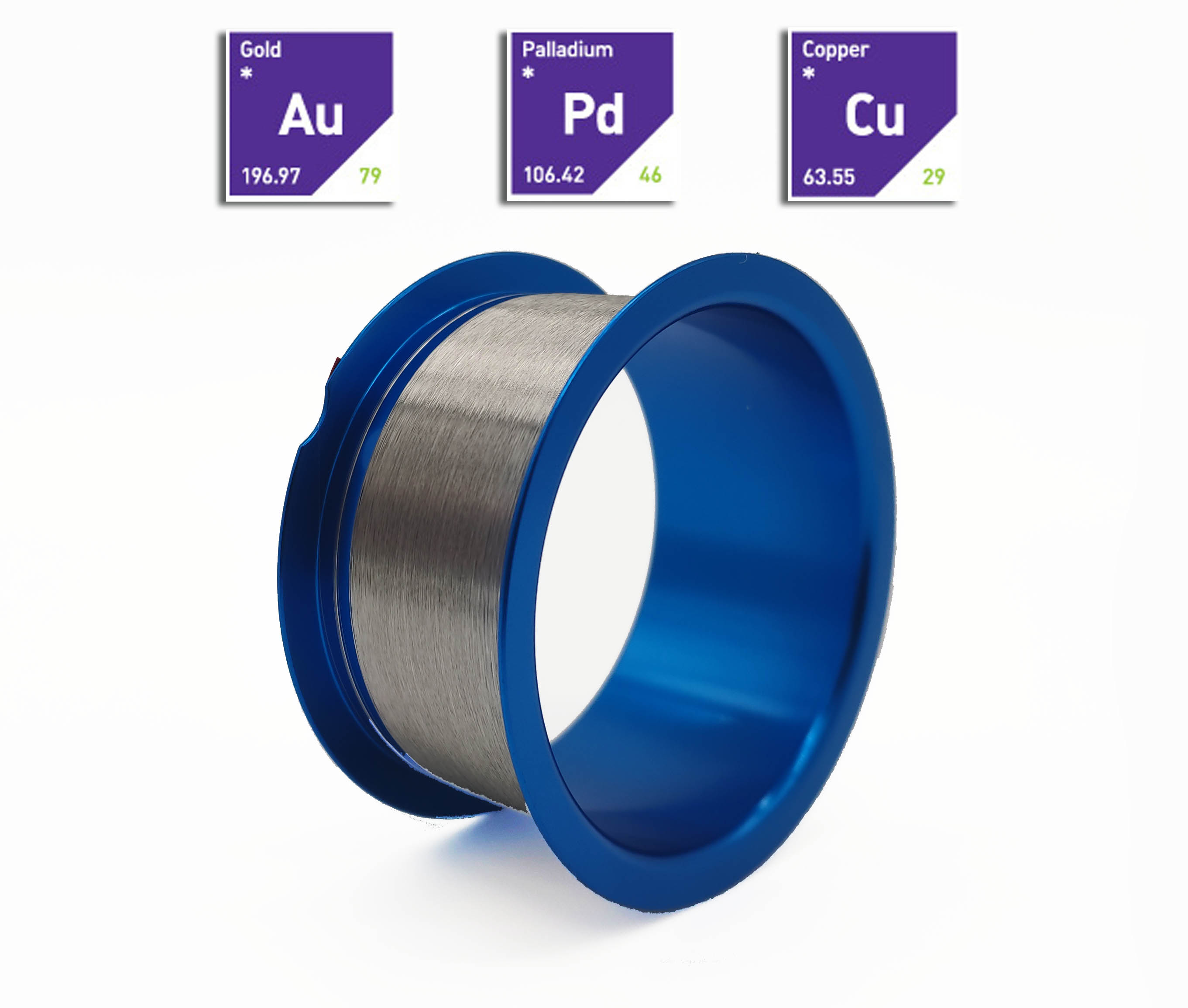Au-Pd-Cu | Linqalloy Bonding wire
- 0.01 - 0.2% Gold Flash (Au)
- 1.2 - 2.5% Palladium Coating (Pd)
- Copper (Cu) Balance
Product Description
LINQALLOY AuPdCu Au Flash, Pd coated Copper wire is a winded,smooth surfaced, unpolluted bonding wire, ideal for wire bonding in IC semiconductor applications. It is available in thicknesses ranging from 18 to 25 microns and is fully compliant with the RoHS requirements of specific hazardous substance control.
LINQALLOY AuPdCu bonding wires have been proven to provide better sulfidation corrosion resistance than the traditional alternatives while also improving Palladium segregation during the electric flame off process. Additionally they tend to stabilize the electrical resistivity of the bond while also requiring reduced starting voltage.
Storage conditions:
Gold flash Palladium coated Copper wires can be stored for 6 months in a vacuum sealed bag and need to be used in 50hours after exposure to ambient environment. Naturally, in a Nitrogen protected environment they have an elevated work life of 7 days.
- The vacuum sealed product needs to be stored in a stable and clean environment. The optimum storage temperature is ±25℃ with a relative humidity ranging from 30% to 70%.
- Once unsealed, put the product in a Nitrogen protected environment (up to 7 days). Otherwise, the recommended service life is 50 hours for ambient exposure .
Technical Specifications
| General Properties | |||||
| Density (g) | 8.96 g/cm3 | ||||
| Mechanical Properties | |||||
| Elongation Elongation Elongation is the process of lengthening something. It is a percentage that measures the initial, unstressed, length compared to the length of the material right before it breaks. It is commonly referred to as Ultimate Elongation or Tensile Elongation at break. | 5 - 17 % | ||||
| Thermal Properties | |||||
| |||||
| |||||
| Thermal Conductivity Thermal Conductivity Thermal conductivity describes the ability of a material to conduct heat. It is required by power packages in order to dissipate heat and maintain stable electrical performance. Thermal conductivity units are [W/(m K)] in the SI system and [Btu/(hr ft °F)] in the Imperial system. | 398 W/m.K | ||||



